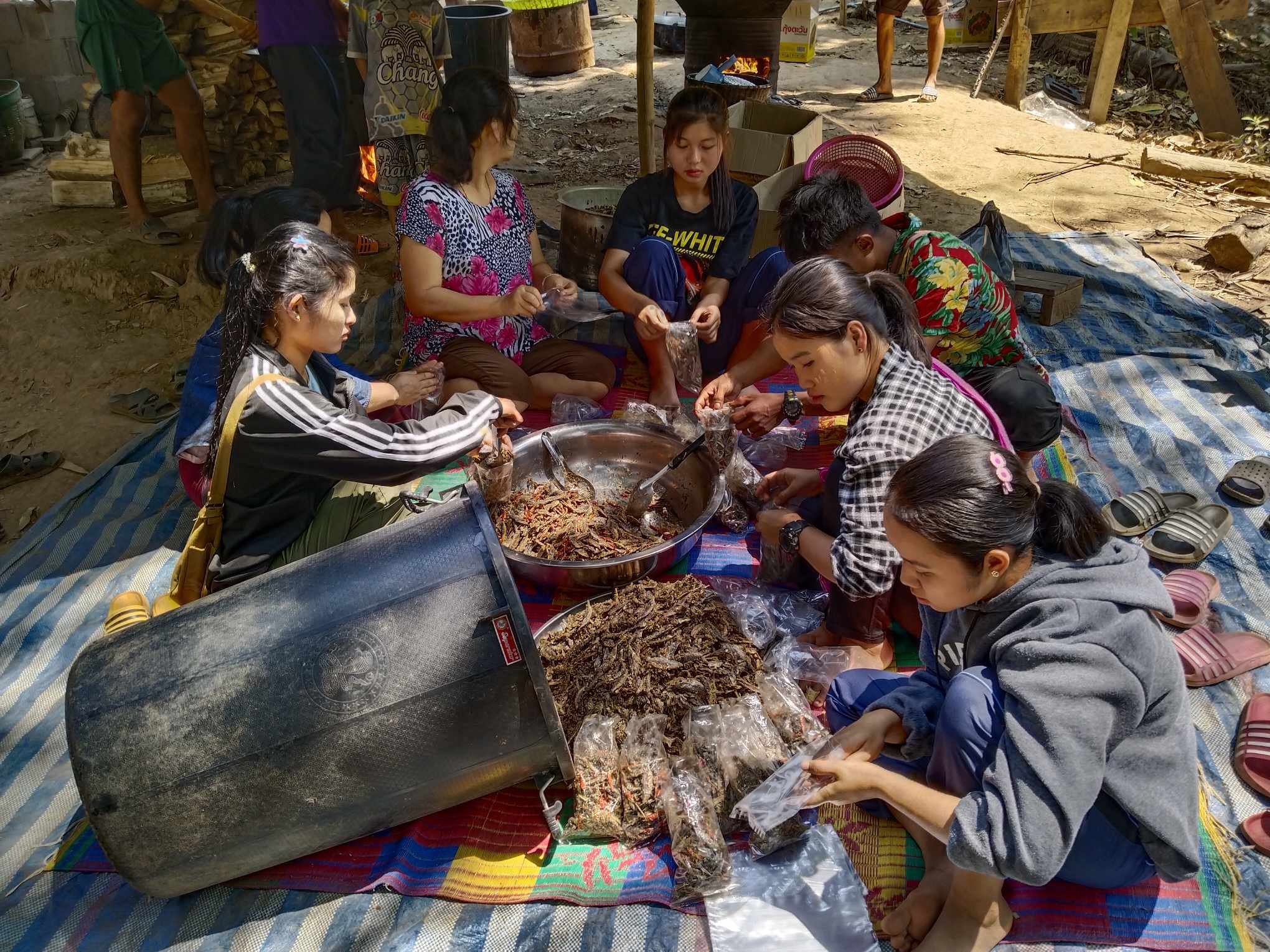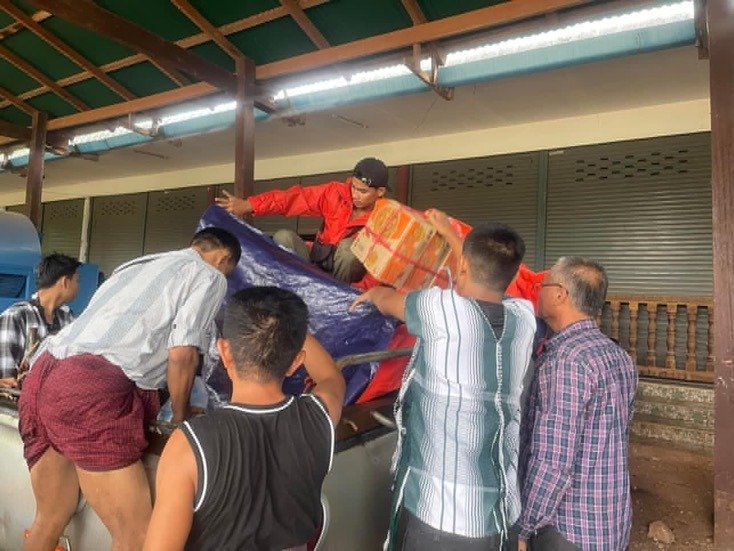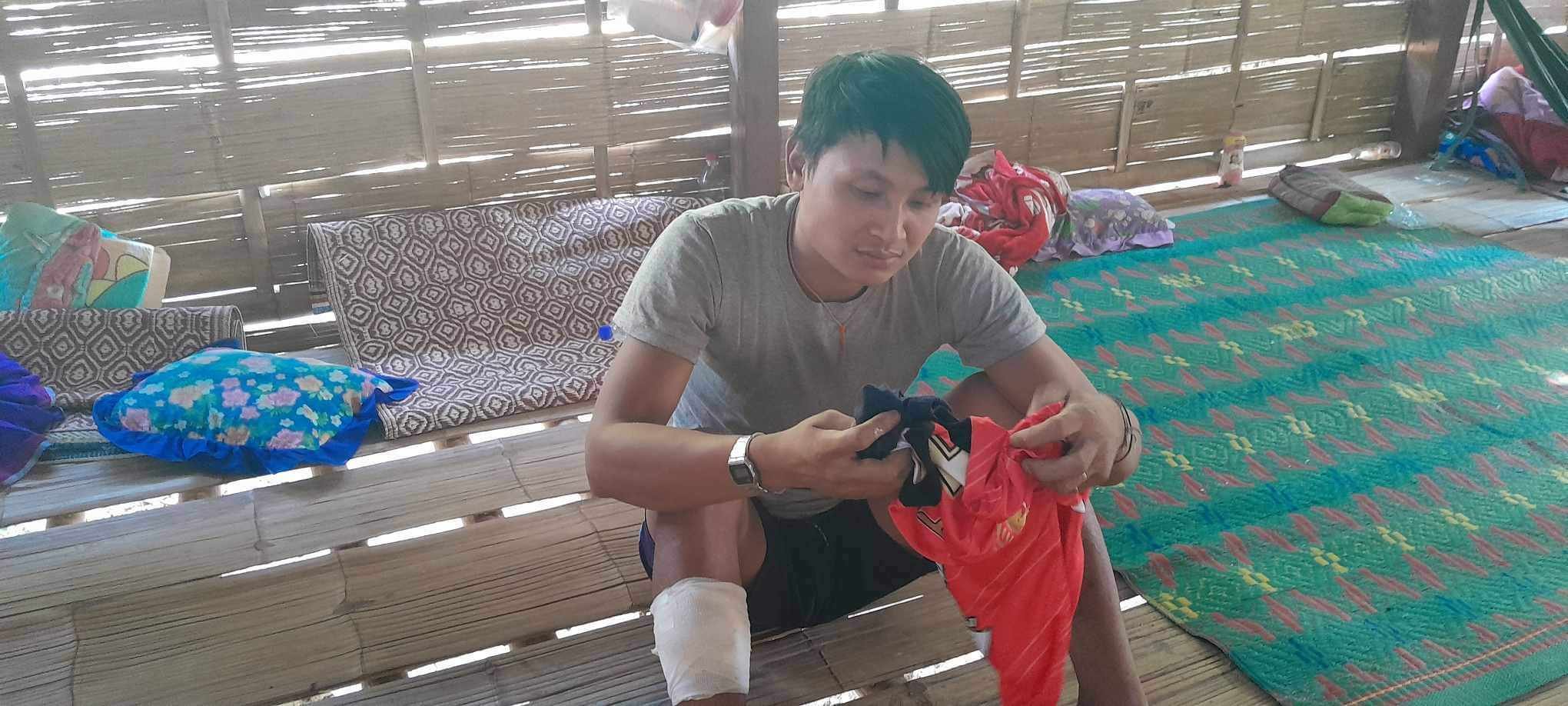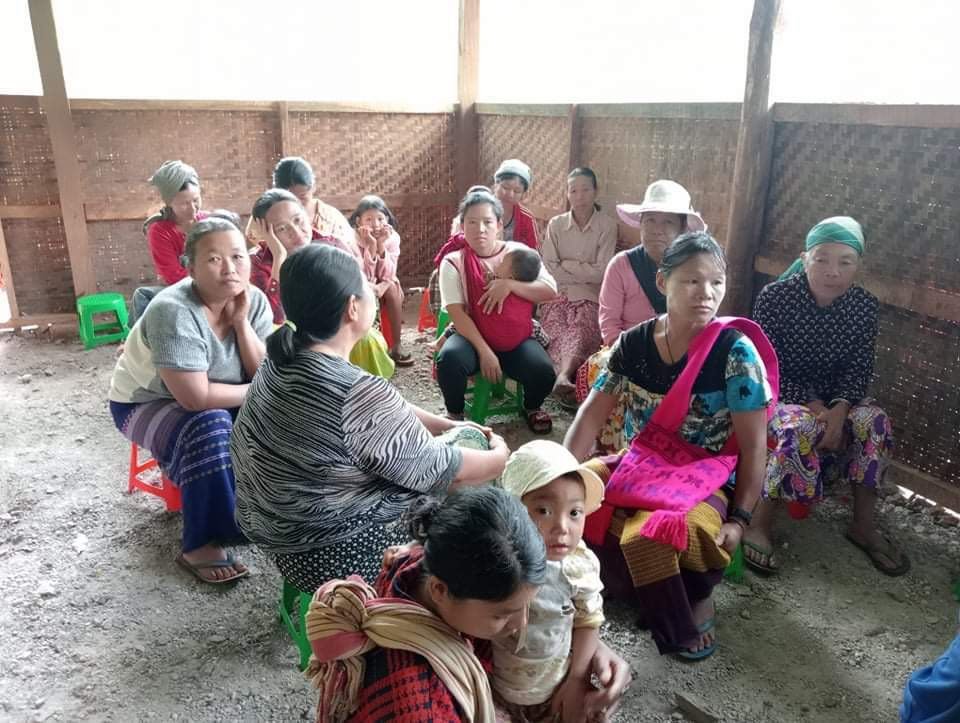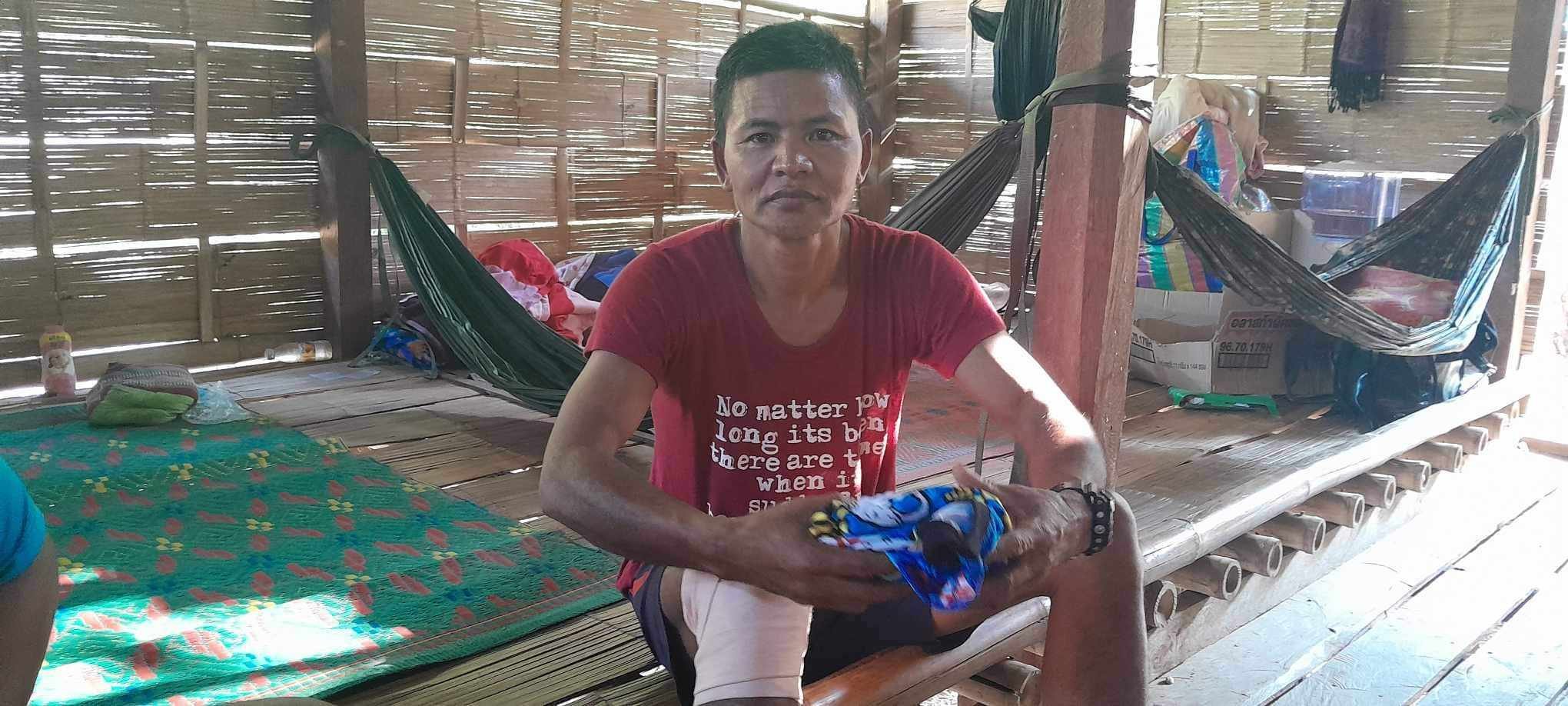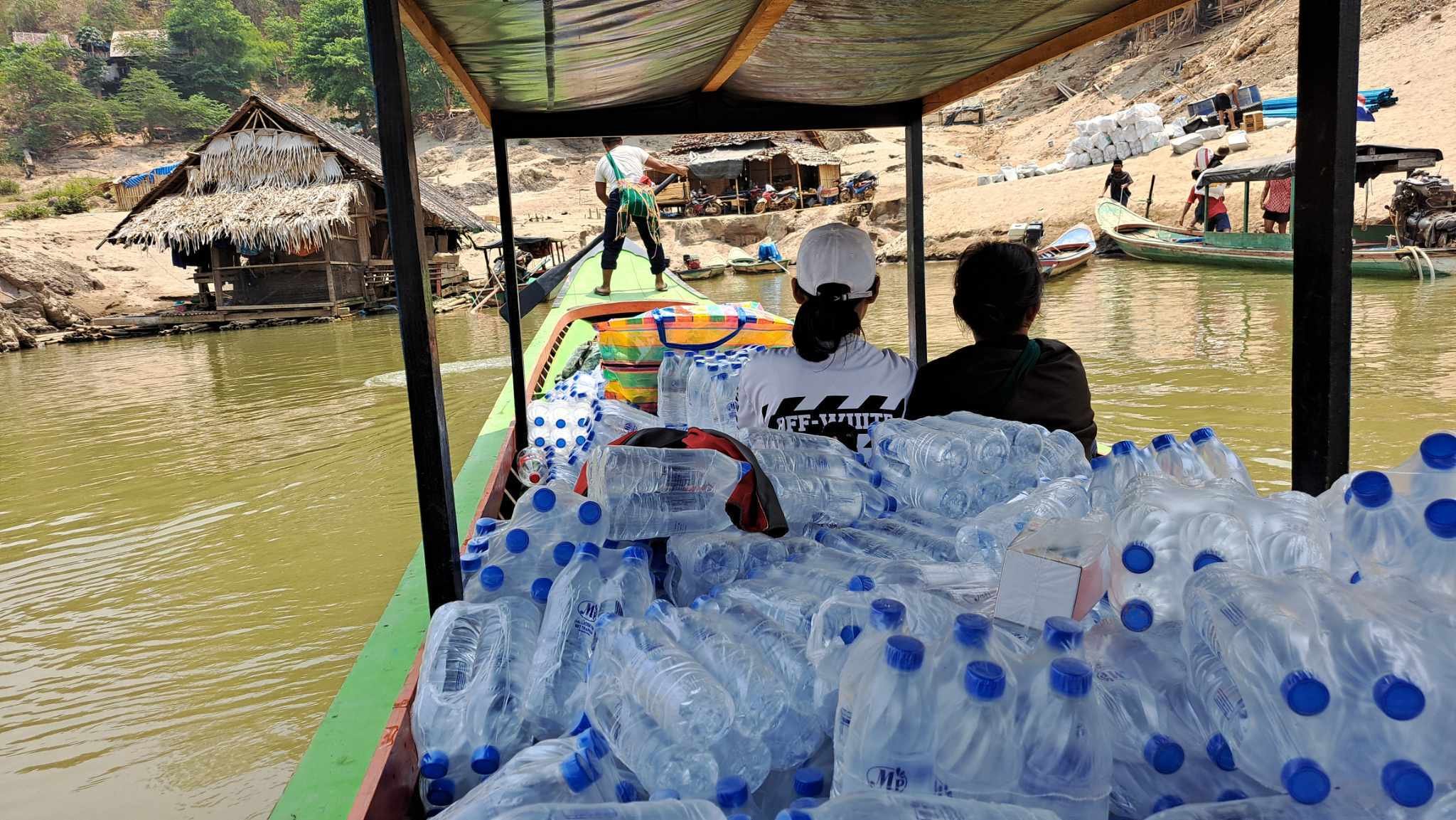Beyond the Bombs: Resilience and Relief in Karenni State
Karenni State has been gripped by relentless violence since the coup, and the scale of suffering is overwhelming. The military’s use of airstrikes and heavy artillery has forced more than 170,000 people from their homes, turning their lives into a constant search for safety. Families are scattered across the state, huddled in makeshift camps, hiding from the conflict that seems to find them no matter where they go.
Imagine what it must be like to be uprooted multiple times, as many of these displaced families have been. The trauma is palpable in every camp—children suffer from anxiety so severe that the sound of a passing plane can send them into panic. They’ve grown up in a world where violence is the norm, where every day is uncertain, and the idea of home has been replaced with an unsteady, impermanent shelter of bamboo and plastic. For many, the trauma is only deepening as they continue to move from one conflict zone to the next.
In Karenni, the Daw Noe Khu and Daw Lyar Khu camps are just two of the many places where displaced people are struggling to survive. These camps were originally set up to offer some level of safety, but with constant fighting nearby, even these locations are under threat. The people there are desperate for food, clean water, and medical care. Many haven’t had access to clean drinking water in days and are forced to make dangerous treks to nearby streams. The risk of disease is high, and malnutrition is spreading fast, particularly among children. Food is scarce, and families rely on irregular aid deliveries to meet their most basic needs.
Adding to the challenge is the harsh terrain. The camps are difficult to reach, and with military attacks disrupting the roads, bringing in supplies is an ongoing battle. The local teams that Better Burma supports have been risking their lives to get aid to these areas. Recently, they managed to deliver several sacks of rice to a camp in Hpruso, where families had been without adequate food for weeks. It was a small victory in a much larger struggle, but for those families, it meant survival—if only for a little while longer.
The medical situation is equally dire. The Myanmar military has deliberately targeted hospitals and clinics, knowing full well that this would devastate the local healthcare infrastructure. Most of the remaining hospitals are small, hidden facilities, often in the jungle, where doctors work under almost impossible conditions. One doctor shared how his hospital has been attacked multiple times, forcing them to rebuild and relocate to keep treating patients. Despite these challenges, the medics there have performed over a thousand surgeries, from neurosurgery to obstetrics, with only the most basic equipment available.
And it’s not just the hospitals that are under threat. Even mobile clinics, set up to reach the most remote communities, have become targets. Yet, the doctors and medics persist. They’ve continued to go out into the field, treating those who can’t make it to the camps. In some cases, they’re the only lifeline for people who are stuck deep in conflict zones, with no way to access other forms of aid.
The impact on children is especially devastating. In one camp in Pekon Township, over 100 children under the age of twelve are suffering from malnutrition. The camp has been running for nearly three years, and the longer these children go without proper nutrition, the more severe the consequences become. This isn’t just about hunger—this is about their development, their future. Without proper food, these children will face lifelong challenges, both physically and mentally.
It’s easy to feel overwhelmed by the sheer scale of the crisis in Karenni, but we’ve seen that even small acts of support can make a real difference, and that is why we appreciate each and every contribution that our donors have so generously provided. Every bag of rice, every water filter, every medicine delivered to these camps is a step toward keeping these families alive. It’s not enough to end their suffering, but it’s enough to remind them that they haven’t been forgotten.
The people of Karenni need more than just emergency relief—they need hope. They need to know that the world is paying attention, that there are people out there who care.
If you’ve already given, we can’t thank you enough. Your generosity has made a tangible difference in the lives of the people of Karenni. If you can, please consider giving again. And if this is the first time you’re hearing about the crisis in Karenni, we urge you to get involved. Together, we can ensure that the people of Karenni State have a fighting chance to survive and rebuild their lives.



